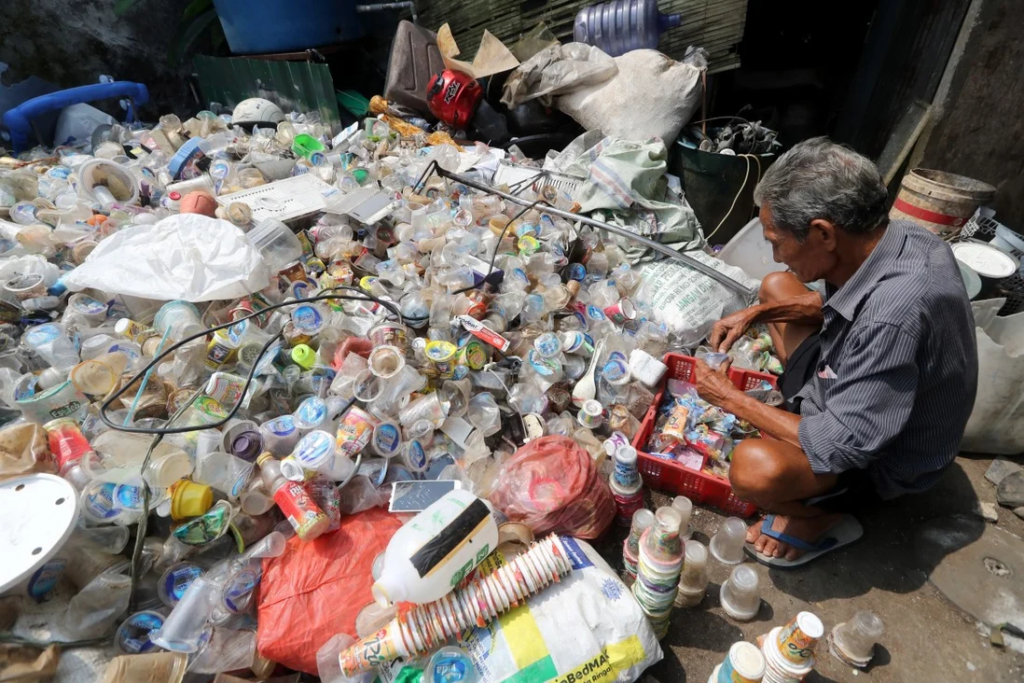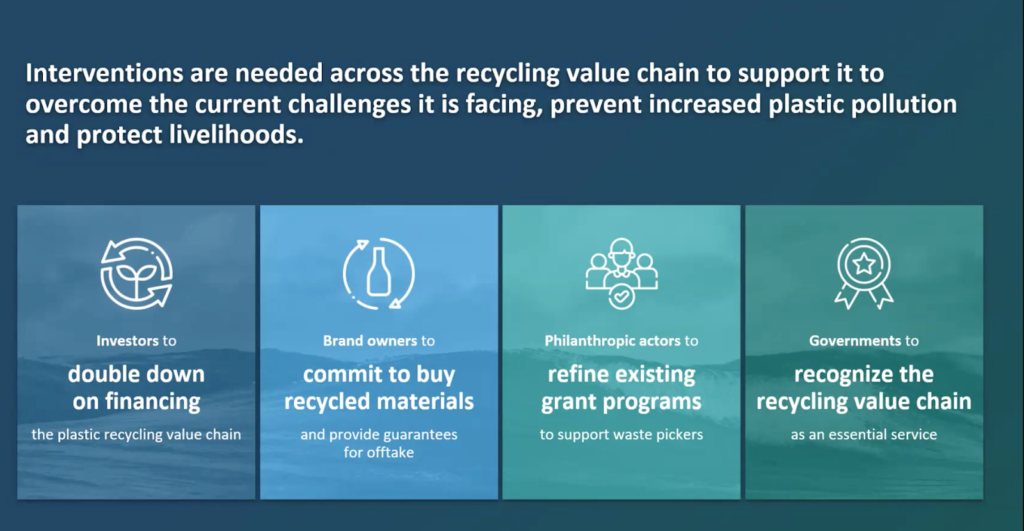Regula Schegg: How the Circular Economy can change Southeast Asia
During her speech in exploreASEAN Preparatory Seminar, Regula had brought up an everlasting issue in Southeast Asia which is the plastic leakage into the ocean. The area is a major contributor to land-based plastic waste leaking into the world’s oceans, with more than half of it coming from four nations, Indonesia, the Philippines, Vietnam, and Thailand, along with China, the top single polluter, which has been worsening due to the global pandemic.
Regula is Circulate Capital’s Managing Director of Asia. She leads the investment strategy, manages the investment team, and oversees Circulate Capital Ocean Fund’s investment portfolio in South and Southeast Asia. She further established a social enterprise in the Philippines, developing sustainable housing technologies, establishing production and construction of affordable housing solutions in collaboration with urban poor communities and civil society organizations in Southeast Asia.
During the time at our seminar, Regular had delivered to the participants an insightful speech about the mentioned issue in the region along with the effect of COVID-19. Many countries in Southeast Asia have been struggling with poor waste sorting and disposal systems, and their growth in population and explosive demand for consumer products mean more single-use plastic ends up in landfills or leaks into the environment.

Globally, COVID-19 has touched every business and community in a variety of ways. In Southeast Asia specifically, more plastics are being used as people started ordering food when they could not go out to eat. Moreover, the pandemic has impacted the poor of the poor, said Regula in her presentation. A study by circular economy consultancy GA Circular has found that lockdowns and COVID-19 prevention measures may have done permanent damage to the recycling sector in South and Southeast Asia. The recycling trade in these regions has been already struggling with poor infrastructure, labor shortages, and non-competitively priced recycled plastic before the pandemic hit, and the virus has exacerbated these issues, in some countries almost wiping out the sector.
According to Regula, we all have a role to play to help critical industries ensure the long-term resilience of the community in these countries. And to tackle plastic consumption and bring it back to the Circular Economy we all need to take action to reduce greenhouse gas emissions. Therefore, interventions are needed across the recycling value chain to support it to overcome the current challenges it is facing, prevent increased plastic population, and protect livelihoods:
- Double down on financing
Regula stated that it is of utmost importance in the industries globally and also in Southeast Asia is to invest in double down on financing the plastic recycling value chain.
- Commit to buy recycle materials
Brand owners need to commit to buy recycled materials and provide guarantees for offtake. Most of the international corporations in the food industries or consumption industry commit to recycle content by 2025 – 2030.
- Refine existing grant programs
Philanthropic actors in emerging markets such as the Southeast Asia region are extremely important. It’s not just about investing but about building an ecosystem for the entire community. There’s a need for tremendous education in the early stage towards children: How consumption of plastic can change their lives to refine existing grant programs to support waste pickers.
- Recognize the recycling value chain
Governments should recognize the recycling value chain as an essential service and play a key role in driving the necessary policies either to prevent plastics usage or even to enable and allow companies to be able to use recycled contents.

The impacts of COVID-19 on the plastic recycling value chain in South and Southeast Asia would last long after the pandemic is over. Investment in the waste and recycling industry is needed more than ever. The problem not only demands action from organizations, companies globally and locally, but also the implementation of government policies as well as the awareness of the population to work together to build up a sustainable living environment in the region.
